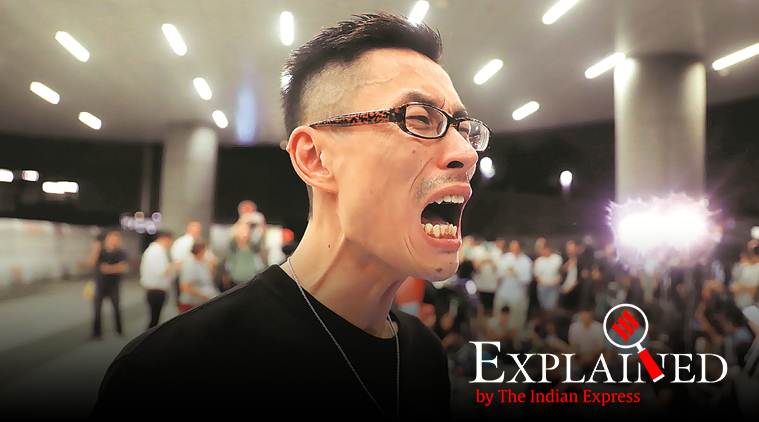Explained: China backs off in Hong Kong. What happens now?
Extradition Bill withdrawn, question is whether protesters will relent on newer demands
 At a press conference by protesters in Hong Kong on Wednesday evening. The protesters have not indicated a softening of their stand in response to the concession announced by Chief Executive Carrie Lam. Reuters
At a press conference by protesters in Hong Kong on Wednesday evening. The protesters have not indicated a softening of their stand in response to the concession announced by Chief Executive Carrie Lam. Reuters
After three months of mass protests triggered the worst crisis in Hong Kong since it returned to Chinese control in 1997, the city’s Beijing-backed Chief Executive announced on Wednesday the withdrawal of the proposed law at the heart of the people’s anger.
While the sudden and unexpected concession met the number one demand of the protesters, it was not immediately clear whether this alone would return peace and orderliness to Hong Kong’s streets.
This is because the protests that began this June over the Bill (now withdrawn) that would have allowed the extradition to China of suspects accused of certain crimes has, over the past several weeks, expanded to cover a wider spectrum of demands, including core political reforms and an inquiry into police brutality with protesters.
Is the contentious Bill really dead?
Quite soon after the protests began, Chief Executive Carrie Lam had said she would delay the Bill. But this was not seen as a firm commitment, and on June 16, some 2 million Hong Kongers protested in the streets. Had Lam announced a suspension — rather than a withdrawal — of the Bill from the agenda of the Legislative Council, she would have, under the rules, left open a window for its restoration, and thus reintroduction, after serving a notice of 12 days. However, now that she has withdrawn the Bill, reintroduction would mean going through a longer process.
So, are the protests likely to stop?
No media analysts or commentators expected them to on Wednesday evening. Online, protesters underlined that they had “five demands, not one less”. Besides the formal withdrawal of the Bill, the other four were: an independent probe into police actions; amnesty for arrested protesters; direct elections for all lawmakers and Chief Executive; and withdrawing the reference to participants in a major protest on June 12 as “rioters”.
A section of protesters has become extremely militant and violent, and analysts were waiting for the weekend — when the worst protests have been happening — for an idea of the mood among the general public. “It may ease anger a little, but it’s definitely not going to get people out of the streets… It’s too late; the focus of the protests is not on the Bill anymore,” an explainer in The New York Times quoted Samson Yuen, a professor of political science at Lingnan University, as saying.
But why has Beijing backed off?
Beijing has claims to global leadership, but international headlines about China have not been flattering of late. The messy trade war with the United States continues, and the extended unrest in Hong Kong has not made attempts at a European outreach easy. The financial and psychological costs of the protests have been significant. Several economists have warned that Hong Kong, Asia’s premier business hub, may be headed for a recession. Continued protests would likely keep tourists away for longer, and inflict lasting pain on retail businesses, especially the smaller scale ones.
Also, October 1, the 70th anniversary of the founding of the People’s Republic, looms, and China has planned a series of celebrations across China and among overseas Chinese communities. Bad news about violence and repression in Hong Kong would be avoidable at this time. 2019 is also the year of the 30th anniversary of the Tiananmen Square massacre, when China used tanks to crush a massive pro-democracy movement in the heart of its capital. Beijing is already facing massive global criticism for its policies in the restive Xinjiang province.
- 01
- 02
- 03
- 04
- 05






































